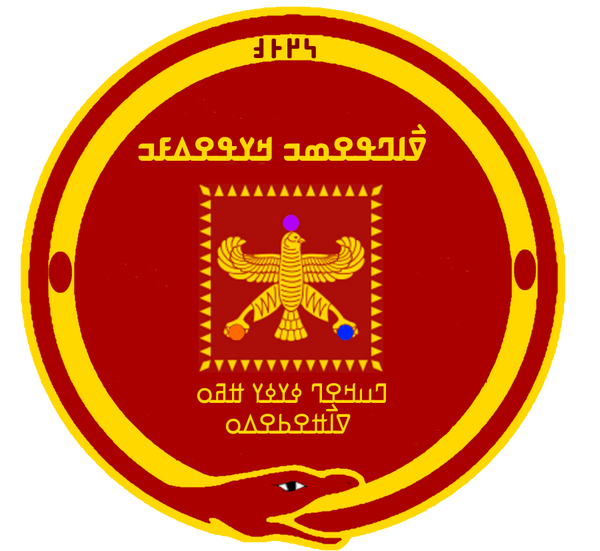
Spiritual Vortexes
Share
From my book "Vodun Lexicon and Commentary":
𞤸𞤤𞤽𞤲𞤩𞤮𞥇𞤲 Hlɔngbŏn – Spiritual Vortex (see alphabet pronunciation at the end of this article)
From the ancient African Vodún paradigm, the Ajã word hlɔngbŏn refers to a spiritual vortex. Hlɔngbŏn are areas of high energy concentration, originating from magnetic, spiritual, and/or dimensional crossing sources. In fact, hlɔngbŏn literally means “energy/force vacuum”.
Additionally, they are considered to be 𞤸𞤽𞤲𞤼𞤮𞤩𞤮 hɔntogbo (gateways) to other realms, both spiritual and dimensional. Hlɔngbŏn, or vortexes, typically exist where there are strong concentrations of gravitational anomalies, in turn creating an environment that can defy gravity, bend light, scare animals, twist plant life into contorted shapes, and cause humans to feel strange. These are simply certain possibilities that humans have thus identified.

However, vortexes can take or fragment human souls. A vortex can “take” a person without their permission. They can give off very weird energies. They are strong and can tear into spiritual and mundane reality. In that, they can rip into and alter a person's soul, a family, and even a community. From this perspective, we can see that leaving these anomalies (whether through lack of knowledge, skill, or purposeful ignorance) can further disturb an already spiritually inept society. Ways to tell that you may have entered a vortex: weird energy, heavy energy, awkward expressions on people's faces when you go to that particular area (and they have no clue...some of these expressions will be almost identical on other people's faces who are being effected), awkward smells not related to sewage or what not, an area where a great number of the people move about in a slouchy way, areas where people are cursing a lot in very angry ways, angry looks on the people's faces, areas whereas parents are cursing at their children out loud, kwk. One needs to overstand and recognize this energy unless they linger in these places and carry that energy with them.
 There are powerful rituals that can be done to normalize the energy of these areas and the primary (not only) deity we go to for this is Ọya. Some of these rituals will take extra work because of the fact that the problem has gone unattended for so long. In fact, there have been whole sections of certain cities that have become and are now vortexes. It explains the weird energy one feels when they go to certain areas of a city. If course, by implications, this takes collective work. The issue is getting others, especially trained priests, to see outside of themselves or their local groups. We will see.
There are powerful rituals that can be done to normalize the energy of these areas and the primary (not only) deity we go to for this is Ọya. Some of these rituals will take extra work because of the fact that the problem has gone unattended for so long. In fact, there have been whole sections of certain cities that have become and are now vortexes. It explains the weird energy one feels when they go to certain areas of a city. If course, by implications, this takes collective work. The issue is getting others, especially trained priests, to see outside of themselves or their local groups. We will see.
This is just part 1 of our exploration into this very important subject.
Wékun do Fɔ̀ngbè me - The Alphabet in Fɔ̀ngbè
Fɔ̀ngbè has 31 alphabets. It has seven oral vowel phonemes and five nasal vowel (awɔntinmɛwékun) phonemes. There are 25 consonants (wékun asu).
Alpha ----- a b c d ɖ e ɛ f g gb h i j k kp Phono ----- a b ʧ d ɖ e ɛ f g gb h i ʤ k kp
Alpha ----- l m n ny o ɔ p r s t u v w x y z Phono ---- l m n ɲ o ɔ p r s t u v w h j
The "c" is pronounced like the "tch" in "hitch". wékun asi – vowel ǒ, ó, à, ɔ́, ɔ̀, á, ɛ̆, ɛ́, ɛ̀, è, é, í, ì, ĭ, ú, ù
Vowels like “ɔ” and “ɛ” are what are considered open vowels. They are often nasal. The “ɔ” (ọ in Yorùbá) is pronounced more like “aw” and the “ɛ” (ẹ in Yorùbá) is pronounced more like “eh” but from the back of the throat causing the open sound as the “a” in bat.
“e” is pronounced “eh” and not like “ee” in the word
“seen”. “u” is pronounced like the “oo” in “food”.
“a” is pronounced like the “a” in “father”. “i” is pronounced like the “ee” in the word “seen”.
